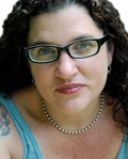Adoption
Adoption and the Psychology of Loss and Love
A new memoir illuminates the complexities of growing up as an adoptee.
Posted September 24, 2024 Reviewed by Gary Drevitch

“I have an amazing life, with a loving spouse and family, but there’s an undercurrent of my adoptee-ness that is just there,” says Susan Ito, whose stunning new memoir, I Would Meet You Anywhere, chronicles her search for her origins as it illuminates the complexities of the adoption constellation for everyone it touches. A Library Journal Best Memoir of 2023 and finalist for the National Book Critics Circle Award, Ito’s book is a meditation on many universal themes: Attachment, secrets, belonging, the meaning of love—themes that become even more poignant when viewed through the lens of adoption.
Ariel Gore: The idea that there’s an “adopted child syndrome” has been floated in the psychological community since the late 1970s, but it’s always been controversial. It’s not included in the DSM because it’s not really a “syndrome,” but you show throughout your book that being an adoptee does have profound psychological effects on everything from attachment to a sense of belonging. Can you talk more about what you see as the unique psychology of being an adoptee?
Susan Ito: Calling it a syndrome is problematic because it’s pathologizing, but at the same time it’s impossible to deny that adoption has a huge impact. Similarly, I have a deep ambivalence about the book The Primal Wound because it implies that adoptees are irrevocably damaged and “wounded” but at the same time—well. It does have profound effects on everything. It comes up unexpectedly, and in the most ordinary moments: When someone remarks about someone resembling a family member. When we are asked about our medical history at a health provider’s office. When we see or witness anything related to pregnancy, birth, birthdays and the like. I’m currently in my “birthday month” and as much as I try to be nonchalant about it, or celebrate it away (I sometimes have a defiantly celebratory I AM HERE, I WAS BORN party) I can’t help thinking that it hits differently for adoptees. The day that we were born also carries huge loss. It’s hard to not think about these things. For the most part, I have an amazing life, with a loving spouse and family, but there’s an undercurrent of my adoptee-ness that is just there.
I will add that adopted people are four times as likely to attempt or think about suicide, and more likely to have mental health issues, and to be in juvenile or adult incarceration systems. This isn’t coincidental.
AG: Why do you think it’s important for people—for all the people in the constellation of adoption—to have open records?
SI: There’s a saying in the adoptee community, “Adoptee rights are human rights.” Why should every other person have access to the fundamental facts of their birth, while adopted people do not? I didn’t gain access to my original birth certificate until I was 60 years old, and records were opened in New York State. This is beyond outrageous. Records are still sealed in roughly half the states in the U.S. This whole practice of sealing records began in the 1920s, when Georgia Tann began a black-market practice of trafficking babies in Tennessee, kidnapping them from poor parents (and often telling them the children had died) and selling them to wealthy families. She started sealing birth records to prevent original families from discovering the truth about their children, and eventually, the practice spread to other states. It began as a coverup for criminal acts. Every adopted person should know who and where they came from, their medical history and lineage. It truly and simply is a human right. At the very least, these should be made accessible when one is a legal adult.
AG: Through the pages of your book, we fall in love with your adoptive parents—these salt-of-the-earth New Yorkers who waited 10 years for a baby with Japanese heritage. That underlines a truth the book illuminates: That an adoptee’s need to know about her origin and identity has nothing to do with a rejection of the one’s parents. Was it important to you to make that nuance so clear?
SI: So often, adoptees are maligned as “angry” or “ungrateful” and this lack of gratitude is linked to their desire to know about their family of origin. It is often considered unthinkable that if someone has a loving family, they would still want to know about their origins. I wanted to underscore the fact that adopted people are not a monolith. Just because someone wants information that is hidden from them, it doesn’t mean they don’t love or aren’t loved. There are plenty of folks who want to search who come from abusive or unhappy homes, and plenty who grow up in loving homes. I grew up in a loving and idyllic childhood, and I wanted to know about my origins. Those things are by no means mutually exclusive.
AG: You do a beautiful job painting a complex picture of your birth mother in these pages. What was most important to you for the reader to understand about your birth mother?
SI: I wanted people to understand that in spite of the many challenges and emotions I had in our relationship, she was and is not a monster. It took me the decades of writing this book to see that she came with her own very complex history; things that shaped her from long before I was born. Being incarcerated in a camp as a Japanese American child was no small thing, and I believe it impacted her throughout her lifetime, as well as mine. I am a strong believer in intergenerational trauma, and understanding that trauma was an important part of developing compassion, in spite of the ways I felt hurt by her behavior. Some readers have told me that they were angry at her, but that was the last thing that I wanted. I am so glad that you saw and understood that desire for compassion. That means a lot to me.
References
Smith, Jerome. "The adopted child syndrome: A methodological perspective." Families in society 82, no. 5 (2001): 491-497.
Keyes, M. A., Malone, S. M., Sharma, A., Iacono, W. G., & McGue, M. (2013). Risk of suicide attempt in adopted and nonadopted offspring. Pediatrics, 132(4), 639-646.


